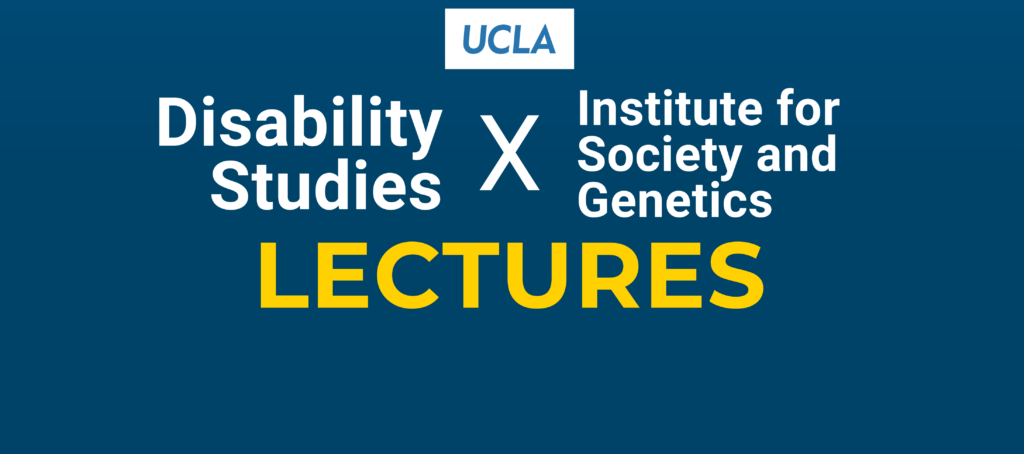
Maisam Alomar: “Carceral Medicine and State Violence: Conceptualizing Abolition Medicine”
We invite the UCLA community to meet Maisam Alomar, a candidate for the first UCLA Disability Studies and Institute for Society and Genetics faculty position.

Lecture Description:
This talk introduces “carceral medicine,” with a focus on its contemporary iterations through entanglements between policing and medicine in plans for “Cop City” in Atlanta, Georgia. Carceral medicine identifies how the central racialized practices and ideologies of carcerality, including physical confinement, surveillance, threat/security, criminalization/punishment, and pathology shape the practice of medicine, including the distribution of resources, decisions about funding and the development of medical technology, and diagnostic criteria for the sorting of bodies and the production of medicalized categories of disability. Carceral medicine also makes many of the ideological links between carcerality and medicine literal, with doctors who serve on police forces through tactical medicine, and police who work in hospitals as a result of legislation that allows medical institutions to have their own police forces. As a counter-concept, the talk further conceptualizes abolition medicine in a variety of settings as a collection of practices through which people targeted by carceral medicine and the mass debilitation of state violence organize against this violence, theorize, survive, and formulate alternative biomedical criteria and practices, exceeding the logics that designate them as expendable life and mark them for death.
Biography:
Maisam Alomar is Assistant Professor of Women and Gender Studies at the University of Colorado Boulder. She received her Ph.D. in Ethnic Studies from the University of California, San Diego. Her interdisciplinary research and teaching interests include dis/ability, medical violence, carcerality, and science and technology in society (STS). Her published and forthcoming work appears in Social Text, Feminist Studies, Feminist Formations, and English Language Notes. Her forthcoming book manuscript, entitled Race for the Cure: Carceral Logics and Abolition Medicine , traces the material and ideological connections between the prison system and U.S. medicine, especially as they operate outside of the prison system. It examines the entanglements between medicine and criminalization in the history and politics of rehabilitative medical projects in the post-WWII era. The book traces how “carceral logics” in discourses of rehabilitation, premised on assumptions of normalcy and deviance, shape private and public health initiatives.
Event Details:
Lecture will be held from 12-1pm. The candidate will be available for additional Q&A and networking from 1-1:30pm. Lunch will be served, RSVP required.
Apr 01, 2025
Hershey Hall, Room 158
12-1pm
Apr 01, 2025
Hershey Hall, Room 158
12-1pm